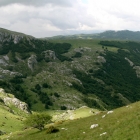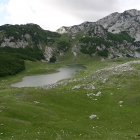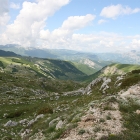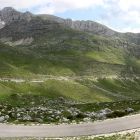Durmitor National Park, unspoiled nature and an adventurous road
For Romanians the name of this mountain sounds very familiar and there is a good reason for that: it probably originates exactly in this language or in other related dialect spoken in the Balkans by descendants of the Romans, such as the Serbian Vlachs, the Croatian Istro-Romanians or the Greek Megleno-Romanians or Aromanians. These were communities of shepherds who roamed the region without care of future national borders or sedentary communities who carried on variations of Latin language and identity long after the Romans were forced to retreat in front of the Slaves and other migrants who became majority in former Yugoslav republics. The name Durmitor describes a sleeping person and is just a letter away from the name used for bedroom (dormitor) in Romanian.
The name fits perfect with this tranquil massif covered with bear rocks, glacier lakes, grass and mountain pine. The National Park is home to some of the finest ski resorts in Muntenegro, most of them around the town of Zabljak, with all the facilities needed by modern tourism. But the natural beauty can be appreciated in the areas less inhabited, where only small villages and shepherd homes are found. Such a road connects Zabljak to the village Trsa and is very similar to the Transfagarasan road in Romania. The road crossing Durmitor is a narrow paved road that hardly allows two vehicles at the same time, with numerous serpentines and a spectacular view if you can find a place to stop. The signs are deficient so you must have a GPS at hand not to end up at the Bosnian border. The highest peak in the Durmitor massif is Bobotov top, over 2.500 m high.
Mai multe despre: Montenegro, Nature • Durmitor • Montenegro • mountains • National Park Durmitor • Yugoslavia • Zabljak- Home Page
start page - Architecture
landmark buildings - Sacred architecture
places of worship - Nature
landscape photography - Concert
performing artists - Christmas
Santa Claus pictures
- Jooble
jobs for photographers - Escape
an out of control blog - Merry Christmas
The best organizer of Christmas parties - Astro photo
Eclipse hunting and astrological photography





